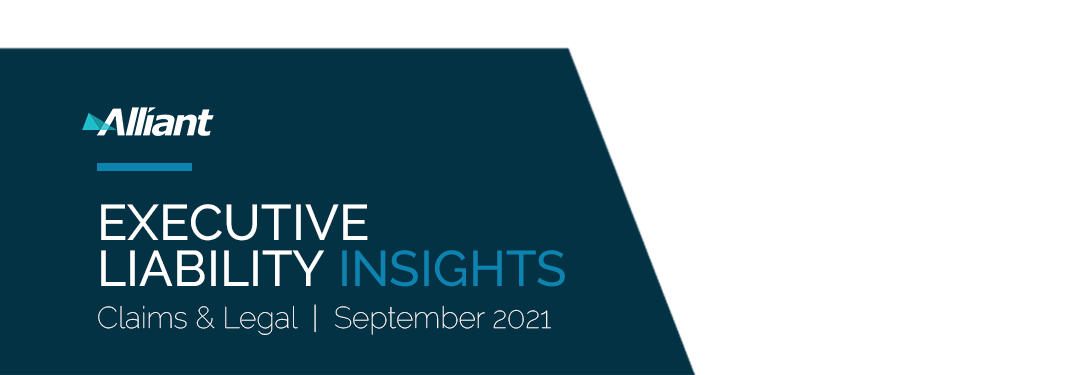

SEC CORNER
SEC USES WHISTLEBLOWER PROGRAM TO ENCOURAGE TIMELY REPORTING OF WRONGDOING
The U.S. Securities and Exchange Commission (“SEC”) recently awarded a total of $40 million to a pair of whistleblowers who initiated a successful enforcement action, despite the fact that one informant waited years to report the misconduct.

The SEC awarded one whistleblower $32 million for prompt efforts to alert authorities and right illegal conduct. The second whistleblower was awarded only $8 million due to unreasonably delayed assistance.
The SEC continues to use the whistleblower program as encouragement to report illegal activity in a timely fashion, making an example of the second whistleblower, whom the order said was penalized for staying silent for years before passing on actionable information. In contrast, the SEC noted the first whistleblower “persistently alerted the Commission to the ongoing abusive practices for a number of years before the investigation was opened.”
SEC GUIDANCE FOR MUTUAL FUNDS AND ETFS

The U.S Securities and Exchange Commission Division of Examinations (“SEC”) conducted a series of examinations of mutual funds and exchange-traded funds (“ETFs”) in order to assess industry practices and regulatory compliance in areas that have an impact on retail investors.
- monitoring for portfolio management compliance and adherence to specific investment restrictions;
- monitoring for specific risks associated with each funds’ investments such as risks associated with certain asset classes and liquidity risks;
- oversight of third-party vendors, advisor’s conflicts of interest, and fees and expenses;
- oversight of valuation procedures and trading practices; and
- fund advertisements and sales literature.
FORMER EXECUTIVES OF INVESTMENT ADVISOR FIRM SETTLE WITH SEC OVER INFLATED PERFORMANCE NUMBERS

The U.S. Securities and Exchange Commission (“SEC”) recently reached a settlement with two former executives of a registered investment advisor firm over allegations they took part in inflating the assets of funds controlled by the firm.
According to the SEC, the firm, through the actions of its former CEO, violated the anti-fraud provisions of federal securities laws when it allegedly inflated the value and performance of funds it managed by including non-binding transactions and bogus investment banking fees on the funds’ books and records. The SEC further alleged the firm’s former chief portfolio manager aided and abetted violations of certain anti-fraud provisions.
“Over the course of years, [the former CEO] and [the firm] gave investors a false portrayal of the [firm’s] Funds’ investment success, with [the former CEO] profiting from this misinformation,” the SEC noted in a statement on the matter. “Truthful fund performance and asset valuation information is what clients and investors expect and must get from investment advisors, and the SEC will continue to prosecute advisors who fail to provide that fundamental information.”
Without admitting or denying the agency’s findings, the two executives agreed to pay more than $5.5 million to settle the claims.
October 2021 Noteworthy Enforcement Actions Filed
Director/Officer | Role | Company |
Nihat Cardak | Former CFO | GigaMedia Access Corporation |
Robert Bernardi | Former CEO, President | GigaMedia Access Corporation |
Richard J. Roberts | CEO, President | TCFG Investment Advisor, LLC |
Source: U.S. Securities and Exchange Commission